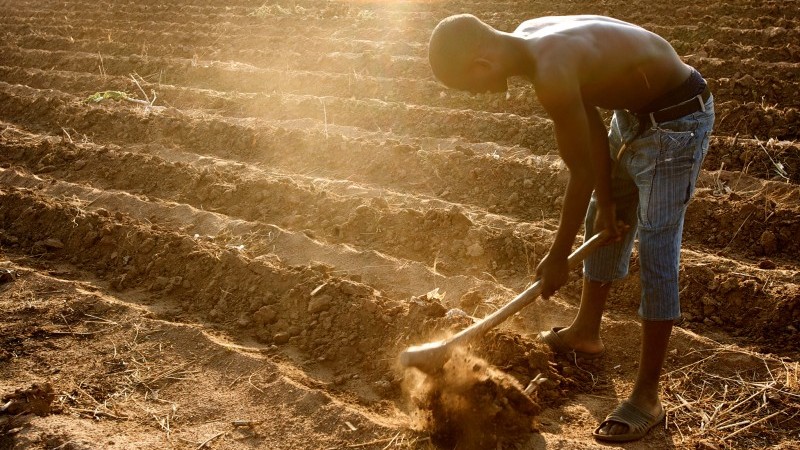Farming rarely gains much attention at international climate talks, overshadowed by discussions on renewables or plans to reshape urban centres to drive out cars.
“Food production” featured just three times the Paris climate agreement text, with “hunger” registering a solitary mention in the preamble to the main chunk of decisions.
That will change if a coalition of 27 African states led by Morocco has its way, spurred on by the savage impacts of El Nino through 2015 and 2016 on the continent’s ability to feed itself.
The “triple A” alliance – short for Adaptation of African Agriculture – says it will embed farming communities at the centre of negotiations at the upcoming UN summit in Marrakech.
“This could be a game changer for African people,” said Mohamed Ait Kadi, president of Morocco’s General Council of Agricultural Development, a government-linked think tank.
“There is a general consensus that our countries are already affected by the impacts of climate change. African farmlands and ranges are increasingly degraded and face declining yields.”
The climate frontline
-The negative effects of climate change are reducing Africa’s GDP by 1.4% a year
-Adaptation costs can reach up to 3% of GDP, each year, until 2030
-This GDP value loss is largely attributed to the degradation of agricultural capacity
-Agriculture is a vital sector in Africa, concentrating between 25% and 35% of direct jobs
-Farming is a source of revenue for about 70% of the African population
-Of $391 billion global climate investments in 2014, sub-Saharan Africa received $12bnSource: AAA white paper
As ever, a key issue is that African farmers lack access to cheap sources of finance, technology that can help them plan for extreme weather and the latest forms of fertilizer and seeds.
A July meeting in Morocco of 60 experts including officials from the UN Food and Agriculture Organisation and Intergovernmental Panel on Climate Change concluded soil and water management across Africa was at crisis point.
Combined with rising global temperatures and erratic rainfalls, this could lead to a 20% slump in crop production by 2050, they said in a paper released this week.
“The issue of funding is crucial. A recent UNEP study (2010) indicates that the economic cost of climate change in Africa could account for 1.5 to 3% of GDP, every year, until 2030.
“Additionally, an ADB 1 study evaluated the adaptation costs in Africa at about 20 to US$30bn per year over the same period. Current flows remain insufficient to meet the real needs of Africa, especially in agriculture and adaptation.”
AAA signatories
Algeria, Benin, Burkina Faso, Burundi, Cameroon, Cape Verde, Central African Republic, Democratic Republic of the Congo, Egypt, Ethiopia, France, Gabon, Gambia, Guinea, Ivory Coast, Lesotho, Madagascar, Mali, Mauritania, Morocco, Nigeria, Republic of the Congo, Senegal, Seychelles, Sudan, Swaziland, Togo
Kadi wants one result of the COP22 summit to be easier and cheaper access to funding for African farmers, who are frequently viewed as risky bets by banks and international donors.
The Green Climate Fund, UN Adaptation Fund and African Development Bank are among organisations known to be piloting agriculture adaptation initiatives, but with limited impact.
“We want to see easier access to climate funds that will help African countries deliver agricultural adaptation programmes,” said Kadi.
“Water is the big issue and the major limiting factor for Africa’s agriculture. Less than 6% of farmland is irrigated. To face the scourge of climate variability we need at least to bring this to 20-25%.”
